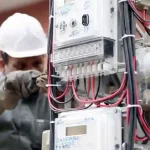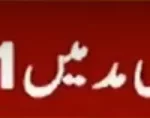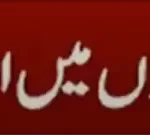LESCO has some rules and regulations for detection bills policy. Here is the all details about it.
Contents
DETECTION BILLING
1-DETECTION BILLING FOR THEFT OF ENERGY
a) While preparing detection bill the provisions of S-26-A, S-39, S-39-A S-44 and S-48 of the Electricity Act, 1910, as amended, shall be complied with strictly.
b) Detection bill for dishonest abstraction or consumption of energy will be assessed strictly in accordance with the provisions of Sectione26~A of the Electricity Act, 1910. Detection bill will be prepared on prescribed proforme attached as Annexure-A.
c) Before service of detection bill, a notice prescribed at Annex-B will be served upon the person whoever is found indulged in theft of energy as defined in Section 39 & 39-A of the Electricity Act, 1910.
d) Detection bills not to be raised against the meters having broken or bogus seals. However, detection bill will be raised in case where, theft has been established.
Domestic Premises
(i) Normal Premises: Three months detection bill will be charged to the consumer whereas any detection beyond three months will be recovered from concerned WAPDA Employee (S) at “fault”.
(ii) A.C Premises : Six (6) Months detection bill will be charged to the consumer whereas beyond Six (6) months will be recovered from concerned WAPDA employee.
Above decisions are applicable to Domestic Single Phase & 3-Phase meters. and Single Phase Commercial meters only, Industrial connection and 3-Phase commercial connection cases will be decided by the competent authority on merit.
DETECTION BILLING FOR DIRECT HOOKING
1-BILLING PROCEDURE FOR REGISTERED CONSUMERS DIRECT HOOKING
Whoever is found to have connected his installations, appliances and apparatus with the works of licensee, for the purpose of supply of energy without its written consent, commits an offense to be prosecuted under Section 39 & 39 A of the Electricity Act, 1910, which requires an FIR to be lodged with Police.
Further to compensate the loss sustained on account of theft of electricity, in pursuance of provisions of Section 48 ibid, a detection / assumption bill will be served, as per laid down procedure, to such illegal and unregistered consumers, for assessing the amount of energy deemed to have been dishonestly abstracted, consumed or used for the period direct electrical connection from the aerial line/ supply line through artificial means, the provisions of Section 26-A will be followed strictly.
The owner or occupier of the premises which are found, for the time being, connected illegally for the purpose of supply of energy with the works of the licensee are liable for payment of detection/assessment bill prepared and served to compensate the loss sustained on account of theft of electricity.
BILLING PROCEDURE FOR UNREGISTERED Consumers Direct Hooking
1) Authorised representative Inspecting Officers/ Detection Teams /Surveillance teams who observe persons consuming energy by using supply from the main supply lines without obtaining a connection from the Distribution Companies, would report the irregularity to the concerned SDO, XEN, S.E. & Chief Executive for necessary action
2) ‘The SDO would allot ‘a universal Raf. No. for billing this category of unregistered consumer by indicating the Sub Division Code which consists of 4 digits, and then add 3 digits of the Figure 8 followed by 4 digit consisting of 0001. These last 4 digits would increase as the number of consumers of this category would increase to show how many persons of above category have been issued detection bill.
For example, the detection bill relating to Gulberg Sub Division No. I Lahore would carry the temporary universal Account No. 1511 8880001 for first consumer and Account No. 1511 8880002 for 2~ consumer and for 3rd consumer Account No. would be 1511 8880003 and so on.
3) The SDO would fill in the proforma for the detection bill (Anrexure-C), get it approved to the competent authority and pass it on to R.O. for feeding relevant input to W.C.C.
4) The Revenue Officer would arrange entry in the input form (CP-Form-1 36 or 137) and send the same to the computer center for billing.
5) The computer will prepare the electricity bill and send it to R.O. for arranging the delivery of the same to the consumer.
6). The SDO and R.O. would pursue recovery under intimation to the all concerned.
(1)DETECTION BILLING ON ACCOUNT OF SLOWNESS
a) In a vigilant system slowness of a meter on mechanical or technical grounds should be detected within one reading cycle or two. Slowness should be determined either with the help of a check meter or by getting the meter tested with the appropriate testing equipment Four proforma,
Annexes-D,E,F & G have been prescribed to be used in series for ascertaining/determining and charging of slowness of meters when the element of dishonest abstraction or consumption of energy is not involved. Charging on account of slowness will continue till the meter is replaced. Efforts should be made to replace slow meters without delay.
b) The period and amount of energy supplied to the consumer during such time when meter was slow will be determined I assessed after considering the results of check meter/testing equipment, consumption pattern, sanctioned load, connected load or any other suitable criteria of the connection:
c) In case where slowness is detected within one reading cycle or two, it will be charged with the approval of load sanctioning authority but CEO will be final authority in all cases. d) In case where slowness of meter was not detected within one reading cycle or two, the detection /assessment bill on account of slowness shall be charged after obtaining approval from the competent authority mentioned in Section (2) below.
(2) APPROVAL OF THE DETECTION BILL
a) The competent authority to approve a detection bill will be the authority next above of the load sanctioning authority.
b) In case where the load sanctioning authority is the Chief Executive Officer of the Company or above, the Chief Executive Officer will be the competent authority to approve a detection bill.
c) Detection Bills recommended by the Surveillance Teams I other detecting agencies will be served only after the approval of the competent authorities mentioned at (a) & (b) above.
(3)ACCOUNTABILITY
Whenever a competent authority, as defined iii Section (2) above, receives a detection/assessment bill for a period exceeding three months for approval, such authority will ask for fixation of responsibility for negligence in this regard. However, approval will not be held for fixation of responsibility.
(4) SERVICE OF DETECTION BILL
After approval of the detection bill by a competent authority, as in Section (2) above, details thereof will be supplied to the Revenue Officer concerned. He will serve the detection/assessment bill to the consumer along with details as well as reasons thereof.
The Revenue Officer will feed amount of detection I assessment bill to the Computer through relevant input form. The computer will issue the separate detection/assessment bill without including it in the current monthly bill. It will be included as arrears in the next current monthly bill.
No officer other than a Revenue Officer is authorized to issue detection bill and therefore, manual preparation of detection bill should be avoided.
(5) REVISION OF DETECTION BILL
Since utmost care is to be exercised in the preparation of detection/assessment bill in the first instance, there should normally be no occasion to revise it. However, if at all necessity is felt to revise a detection bill on the representation of the consumer then the revision of the detection bill will be approved by a Review Committee as constituted below.
However, simultaneously committee will recommend disciplinary action to be taken against those who prepared wrong detection bill in first instance.
(A). For review of detection / assessment bills approved by XEN
iii) XEN concerned (Member)
Note: –
Superintending Engineer concerned and one member of the committee will constitute the quorum.
(B). For review of detection / assessment bills approved by S.E or Chief Executive Officer.
iii) S.E Concerned (Member)
Note: –
CEO and one member of the committee will constitute the quorum. Meeting of Review Committees will be held on fortnightly basis.
(6) LITIGATION / DISPUTES ON DETECTION BILL
a) Neither Electricity Act, 1910 nor the Regulations of Generation, Transmission and Distribution of Electric Power Act (XL of 1997) empower Electric Inspectors of Provisional Governments to assume jurisdiction to entertain complaints and determination / adjudication upon the detection / assessment bills served for theft of energy under Section-26-A of the Electricity Act, 1910.
b) Amount of the detection bill will not be excluded from the current monthly bills except where its recovery is suspended by a competent authority as defined under Clause-C of Section-Xll of the WAPDA Book of Financial Powers or by a court / forum of competent jurisdiction.
(7)RECOVERY OF DETECTION BILL
In case of default in payment of a detection bill the existing procedures laid down for recovery of arrears including disconnection on account of default in payment will be followed.




